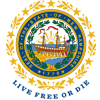For Seniors
Why seniors are the target of investor fraud, the tactics used to defraud them of their life’s savings, and ways to avoid falling prey to con artists
Seniors, particularly retired seniors are considered the most vulnerable segment of the investing public, for a variety of reasons. Generally speaking, seniors have a lifetime of assets, excellent credit, are great listeners, too polite, too trusting, perhaps facing potential life issues, and have fears about running out of money. Some may be home alone and available during the day to receive calls who thoroughly read their mail, and sometimes allow people who knock at their door and seem friendly enough, to enter and discuss financial matters.
Senior may be offered investment opportunities that are simply too good to be true, and fraudsters may use one or a combination of any of these techniques:
- Promising high rates of returns -unlike any of their other investments.
- Playing off fears of outliving their money and incurring huge future medical costs.
- Using scarcity to encourage an immediate sale - a limited one-time deal.
- Holding themselves out as experts with professional designations such as “Certified Senior Specialist”.
- Developing a quick friendship to gain your trust. They are friendly, and persuasive and use practiced techniques to get you to listen to their talk.
Spotlights
VIEW ALL SPOTLIGHTSGoals of Investor Protection
One goal of InvestSmartNH is to provide Seniors with information about how to avoid investment scams and protect their assets.
The timeless adage “never talk to strangers” is probably the best advice when it comes to strangers and your money
To avoid becoming a victim of financial fraud, seniors are strongly encouraged to follow these recommendations:
- Do not make quick or rushed decisions about any investment opportunity. Discuss it first with a family member, trusted friend or advisor.
- Ask for printed information about the company, its financial track record, and principal officers.
- Independently confirm this information to verifying its authenticity.
- Simply say no to anyone pressuring you to make an immediate decision to sign a sales agreement, write a check or transfer cash to a third party. Those are all red flags indicating that something is not right.
- Find out who is selling to you and how they are paid. Any legitimate salesperson will not be offended by your asking.
- Verify the salesperson’s background through FINRA’s BrokerCheck at brokercheck.finra.org or call the N.H. Bureau of Securities Regulation at 603-271-1463.

Just say “no thanks”
Just say “no thanks”
Remember -- If it sounds too good to be true, it probably is. The attached checklist, developed by the N.H. Bureau of Securities member organization the North American Securities Administrators Association, is an excellent guide to help make sure you ask the right questions.




